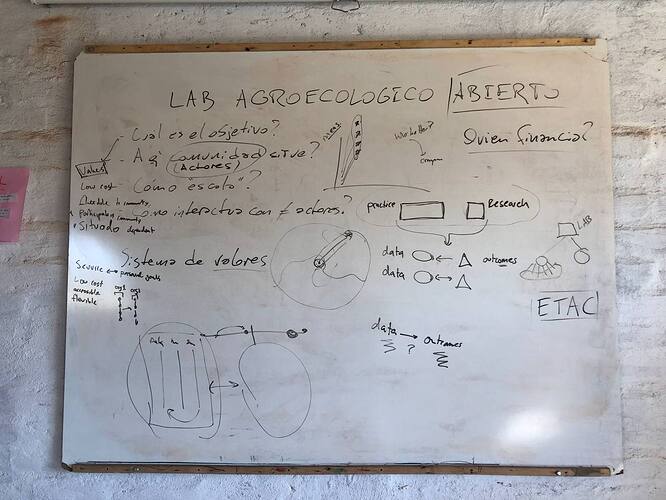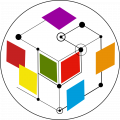Past activities
ACTIVIties 2021
We were a remote residence of UROS project and we contributed with AgroPacha, an experimental cicle of workshops
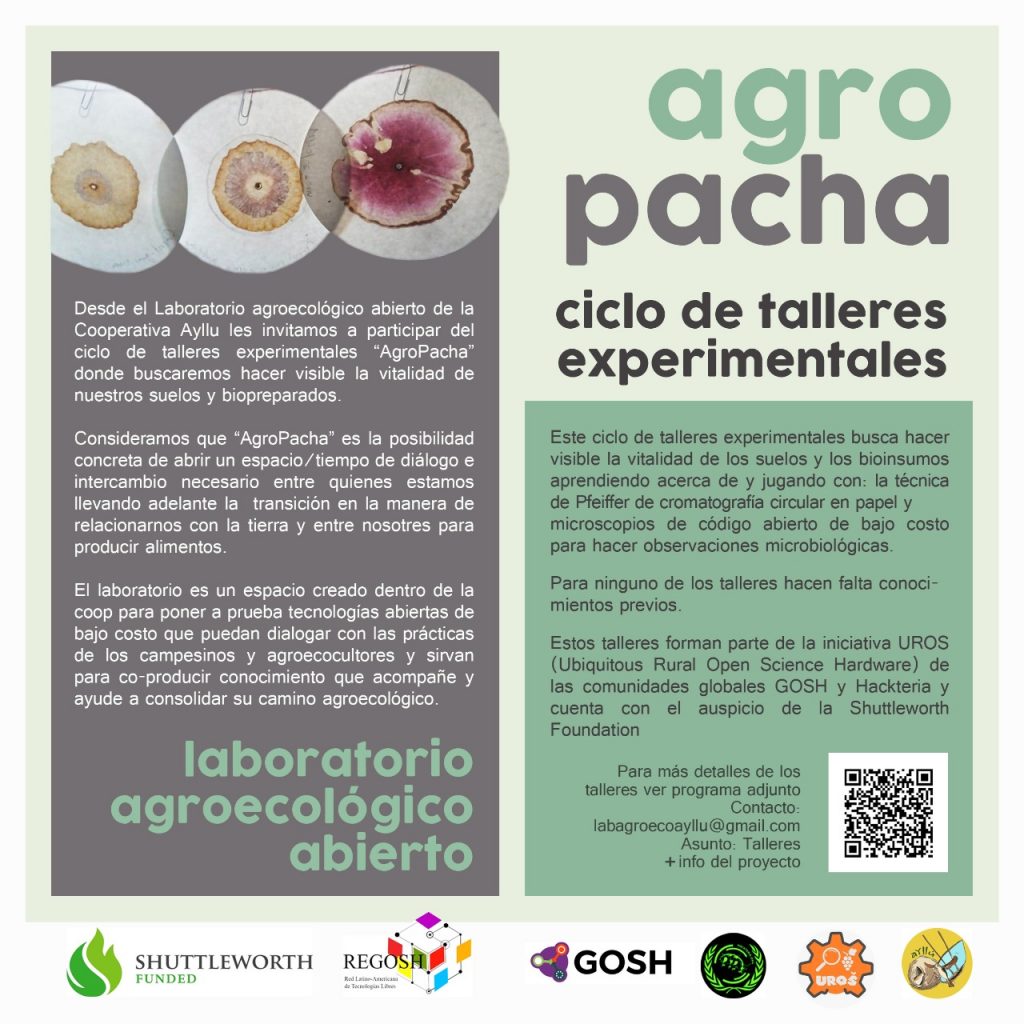
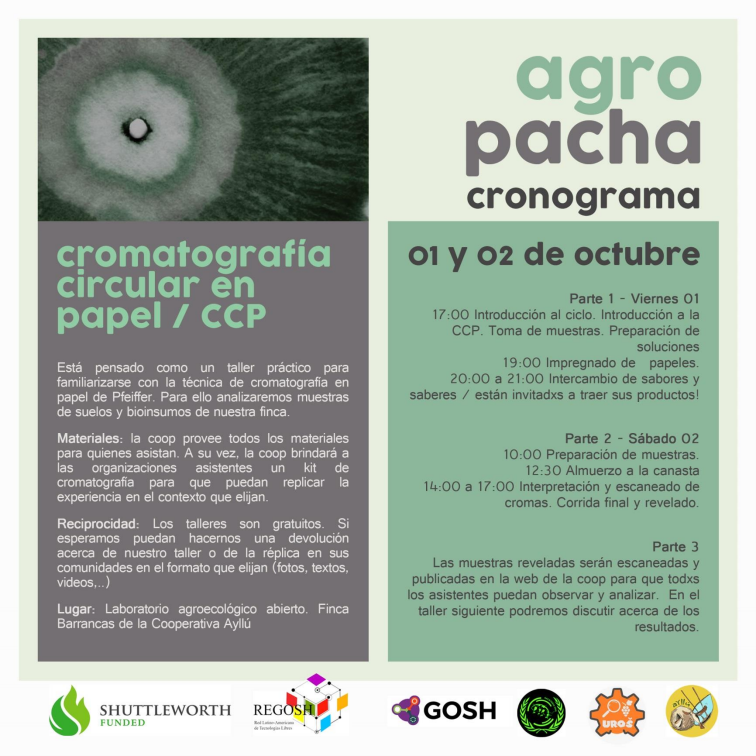
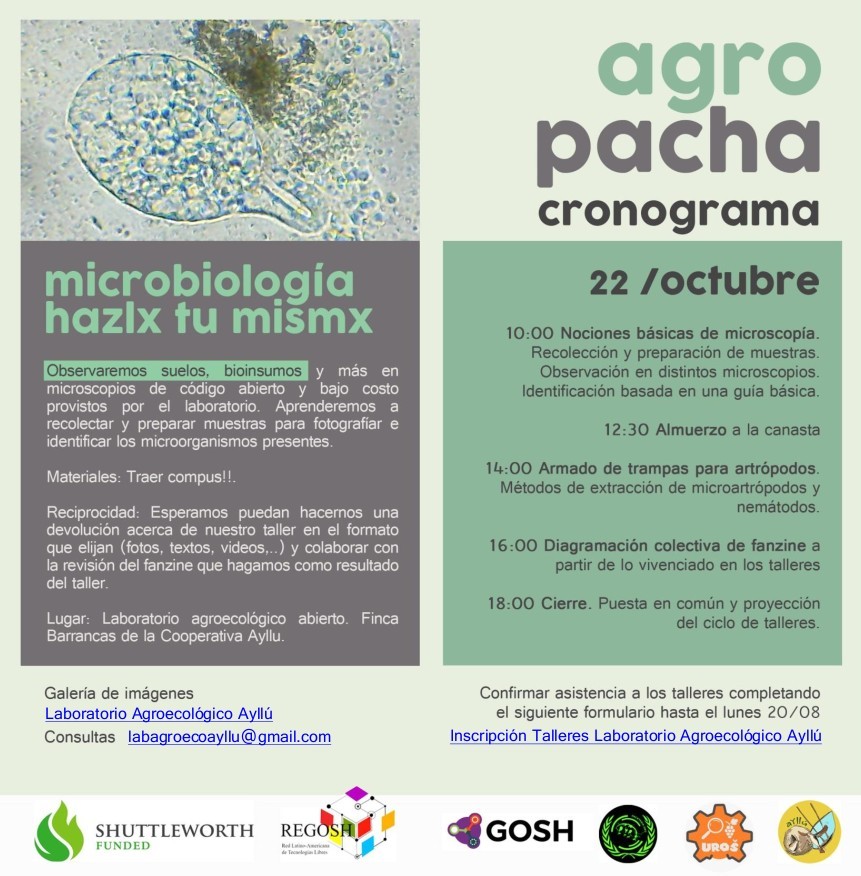
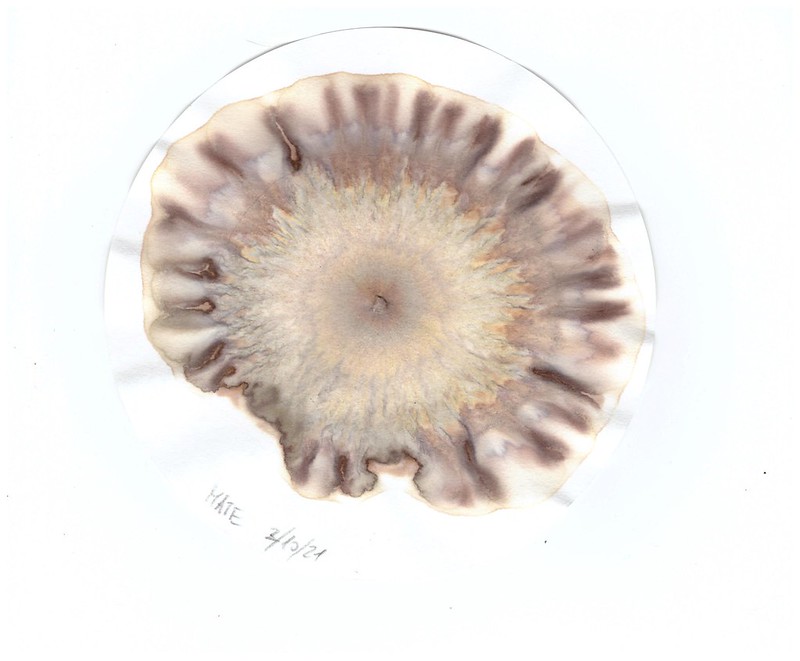
1 – 2 october – AgroPacha -Soil chromatography workshop
We used this workshop to launch locally the Open Agroecology and to attract the attention of different organizations and producers to start talking about soil vitality
October 22 – AgroPacha – DIY microscopy workshop and beneficial fungi isolation
We worked on a basic approach to soil microscopy and also on the isolation of beneficial fungi like tricodherma y baoveria with people from INTA Rama Caída (Eliana García y Laura Martínez).
At the workshop attended students from Colectivo de Agroecología de la FCA UN Cuyo, INTA, producers from Crece desde el pie, Cooperativa Ayllu and UST. We received the visit and collaboration of Pablo Cremades and Nico Mendez from nodo Buenos Aires (reGOSH). During the workshop we played with different versions of Openflexure
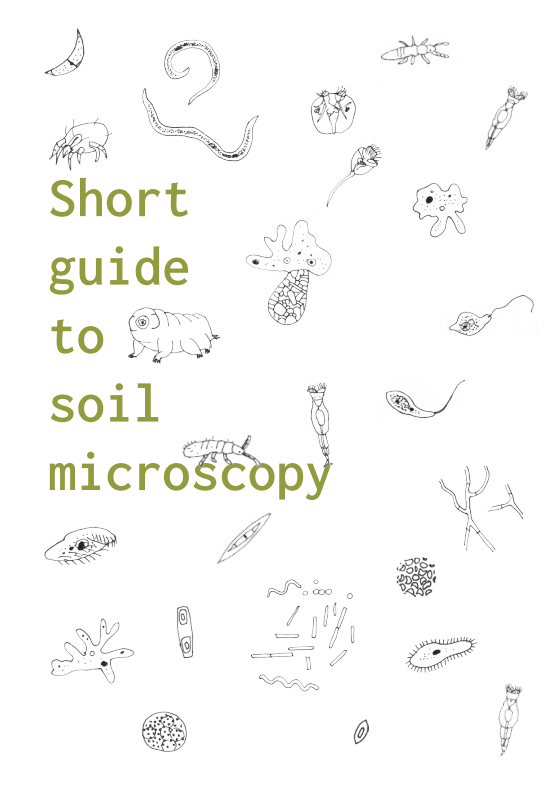
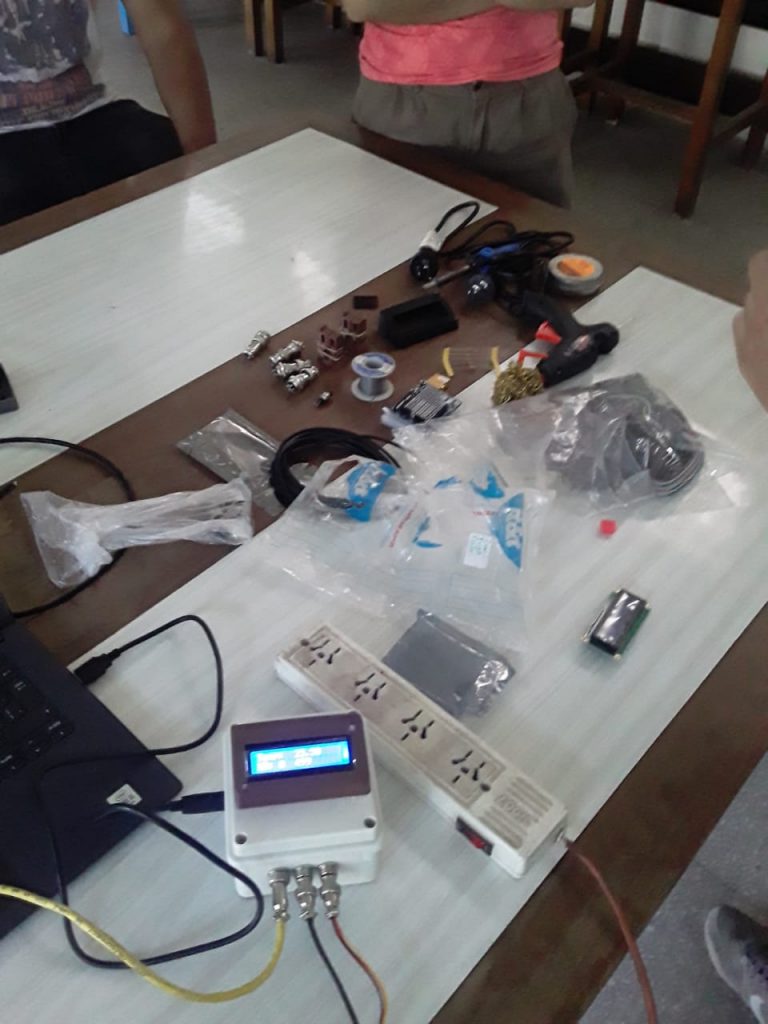
1 y 2 december – 3° Congreso argentino de ciencia abierta y ciudadana (Ciaciar)
Link to the congress programme
Transversal panel: Open Science in front of the environmental emergency
We presented the Open Agroecology Lab
Recording
Assembly of a low cost soil respiration chamber
Virtual workshop
Recording
SOIL RESPIRATION CHAMBER ON GITLAB
2022 – openflexurecon 2022
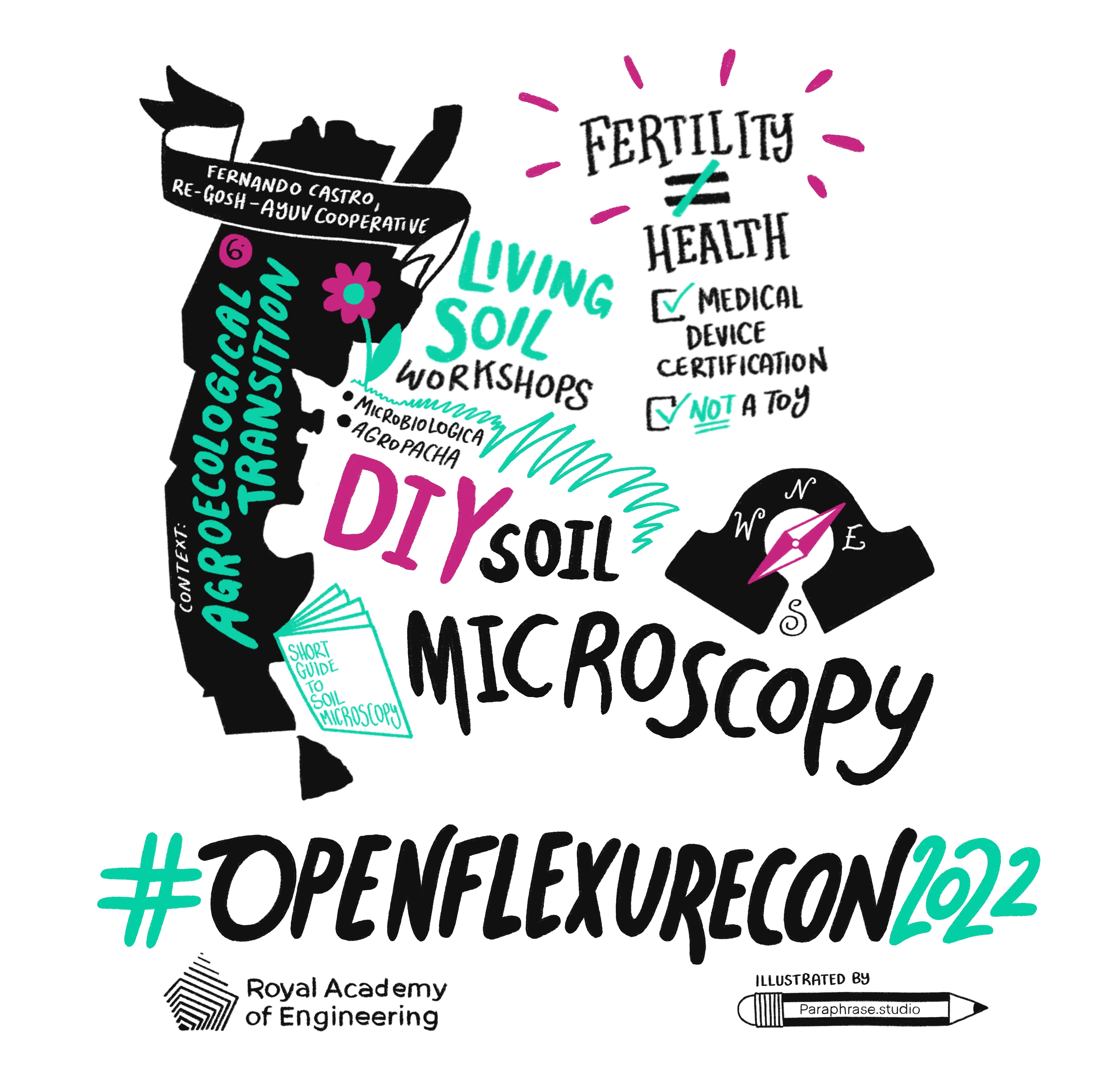
Assessing soil health with farmers in Argentina, using Open Flexure microscopes
Fernando Castro (reGOSH / Cooperativa Ayllu, Argentina) is using Open Flexure microscopes to help farmers understand the impact of their more sustainable farming practices in Argentina.
2022 – Residence + Gathering
The Residence was focused on the work of the reGOSH network on prototypes and protocols for the local open agroecological laboratory project. This project seeks to integrate low-cost open scientific instruments in a laboratory that facilitates the monitoring, visualization and systematization of the changes produced on farms, particularly in soils, during their agroecological transition. In addition, the members of CoSensores and PreserVamos presented their experience and tools in relation to community water monitoring. Additionally, Our-Sci LLC worked on a proof of concept to integrate part of its community science technological infrastructure into the agroecological laboratory..
After the Residence, we held the Regional Event. Other organizations joined the event. Most participants were linked to agroecology and environmental health, such as the Unión de Trabajadores Rurales Sin Tierra (UST) and the Red Puna (both belong Movimiento Nacional Campesino Indígena – Somos Tierra), the quality management of the Central Market of Buenos Aires, the association of producers Crece desde el Pie, la Asamblea Mendocina Por el Agua Pura (AMPAP), among others. Additionally, other researchers and activists that are members of the GOSH network, the Research Center for Transformation (CENIT) and other local academic institutions also joined. During the Event, we discussed problems related to the Extractivist Model in Argentina and its consequences in the food industry, like monoculture and the use of excessive amount of agrotoxic. We also discussed about the closed nature of the scientific paradigm that supports such model.
Additionally, some community experiences related to nature conservation activism were presented. Some other participants talked about their experience with transition to agroecology. We talked about how science could help and what are the tools we need to help communities. We presented the outcomes of the Residence, in particular, the idea of an open agroecology lab based on open source tools that we built collaboratively during the Residence.
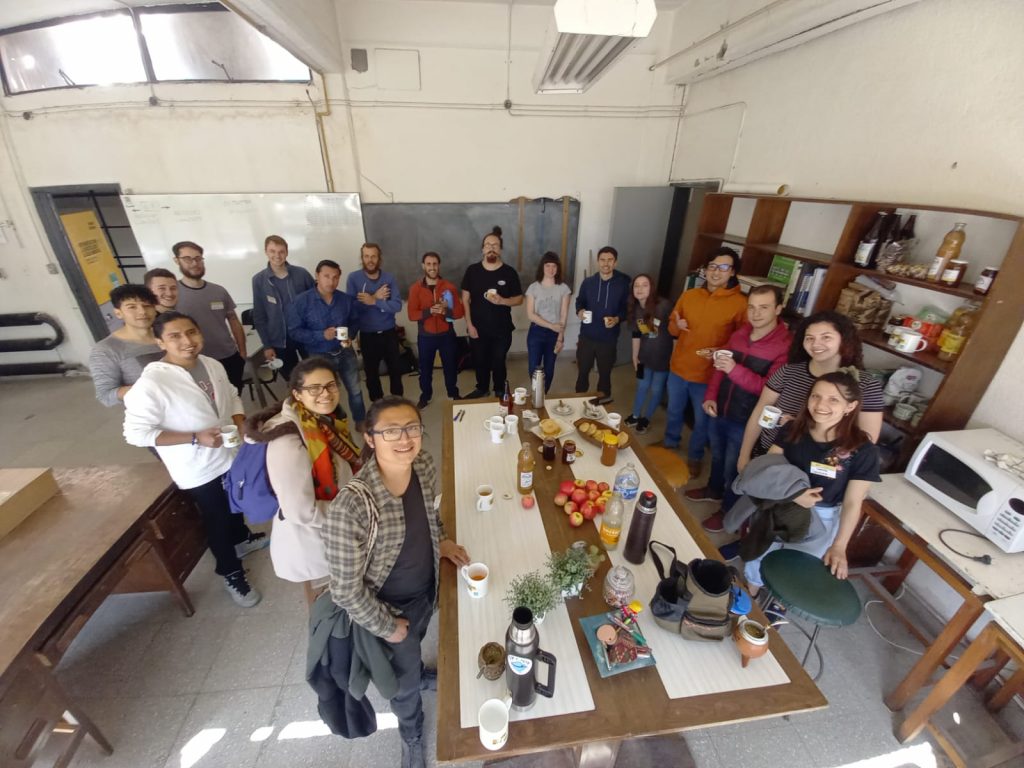
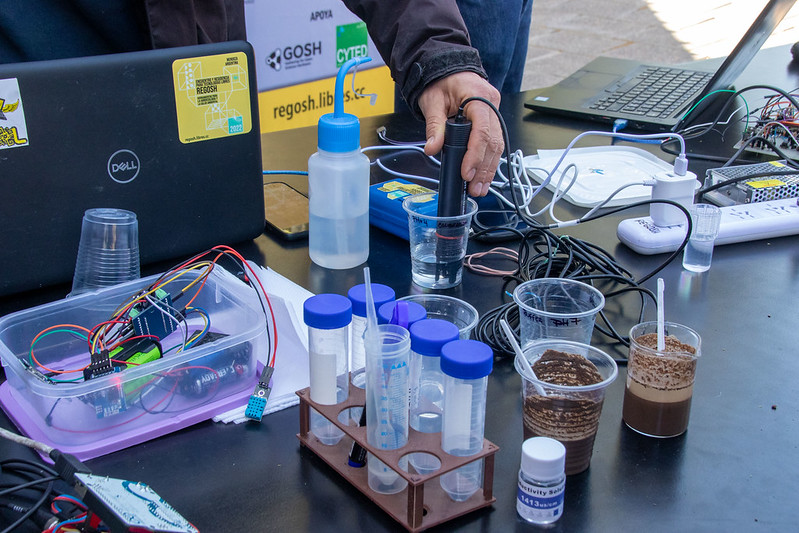
Co-Design of the Open Agroecolgy Lab
The main objective of the Residence was to take all the prototypes we have been working on in the last few years to a mature state. We also wanted to keep working on the co-desigh of the Open Agroecology Lab and its digital ingraestructure.
| Projects repository: All the tools and the outcomes of the Residence are documented here: |
We consider that this event was a rich opportunity to asses ideas related to the integration of these tools in concrete infrastructures that can serve a certain community of users. In this case, the LabAA worked as a proof of concept for this possible integration and contextualization of open technologies in a scientific/technological infrastructure, that can provide technical support in the agroecological transition. The visits to the territories, talks and interactions that arose with the local communities are proof that this type of infrastructure is not only possible but also necessary for these communities.
| Final report: you can find more all the information about this event here: |
